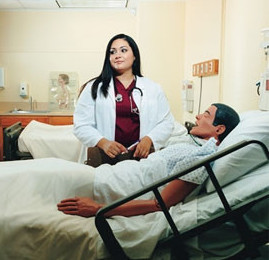
If you are currently working in a state that does not allow nurse practitioners to apply and use a DEA certificate, you will need to apply for one before beginning locum tenens. The same applies for those of you that do not have one because your current job does not require it. Applying for a DEA can be tricky depending on the state you are from.
For example, if you are coming from Florida, you cannot apply for a DEA using your Florida license. This means that in order for you to apply for a DEA, you will need to obtain a nurse practitioner license in another state. I would not suggest just applying to just any state. In fact, the first license you apply for out of your home state should be carefully selected.
The reason for this is because you need this state license to help facilitate your DEA application. This means that you should probably choose a state with full practice authority for nurse practitioners. Some states with limited practice authority require physician supervision and a controlled substance permit. You are unable to apply for the controlled substance permit prior to having a supervisory physician. You are unable to apply for the DEA without the controlled substance permit.
This prolongs the process of acquiring a DEA. States to avoid applying for initial DEA certification include Texas, Pennsylvania, and California. I recommend obtaining licenses in states with a quick turnover period and full practice authority if you need to apply for an initial DEA. Some of these states include Washington, Connecticut, Vermont, and Nevada. These states have full practice authority and allow you to obtain free temporary RN/ARNP licenses. This will speed up the process of obtaining a DEA because you can apply for one even with a temporary license.
If you are in a state that allows you to obtain a DEA but you do not have one, I highly recommend going ahead and applying for one with your current position. When you are searching for a job assignment, you are more “attractive” if you already have the DEA certificate. Sites often require their providers to have them, even if you do not end up using it at their facility.
There are two challenging aspects about attaining a DEA. If you are coming from Florida, you already know you need another state license to apply for the DEA. In addition, you need a physical practicing address to include in your DEA application, which should be in the state you are applying for the DEA with.
This means you cannot apply for the DEA until you already have a job assignment. It can be tricky since a lot of sites want someone to start right away and do not want to wait 2-4 weeks for your DEA to come in. On the other hand, some sites are willing to allow you to start prior to obtaining the DEA, while others will wait. The credentialing process in some sites can take 30-60 days. So these places are usually able to wait for you to obtain a DEA, as long as you already have a temporary or permanent license in their state. It is important you quickly realize that your first assignment as a locum tenens nurse practitioner is the most difficult one to obtain. I believe being open-minded to the location and type of facility will help facilitate this process.
The second challenging aspect involving the DEA is getting an agency to pay or reimburse you for it. In my experience, if you ask the agency flat-out if they will pay for your DEA, few will say yes and most will say no. Nonetheless, when it comes down to the negotiating process (remember the best time is after a phone interview when the site confirms that they like you), you can often receive a different response.
For instance, one of the agencies I was speaking with told me they would not cover my DEA, while others said they would. Upon choosing my first assignment, I was leaning towards going with the agency that would not pay for my DEA. Once I told them that my only hesitation was not having my DEA covered, while other agencies would, they quickly agreed to pay for it. Some agencies will provide you with a monthly stipend or sign on bonus that can be used to accommodate the expense instead.
If you prefer a site with an agency that will not pay for your DEA and will not budge, I recommend you go with the agency that will pay for your DEA. You shouldn’t have to pay $731 for a certification their site is requiring you to have. Therefore, I believe it is important that you are honest with your recruiter about your expectations, and to never settle for a NO. Remember you will not get anything that you do not ask for.
Like this:
Like Loading...













